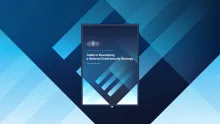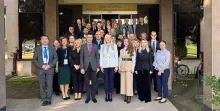Call for Contributions – Freedom From Fear Magazine: Special Issue: Environmental Crimes and Technology: Innovations, Risks, and Solutions
Environmental crimes — from illegal mining and logging to wildlife trafficking and pollution — are among the fastest-growing forms of transnational crime. They damage ecosystems, distort markets, undermine sustainable development, and threaten global security. Frequently, these offences are facilitated by organized criminal networks and accompanied by corruption and illicit financial flows.
Third Edition of the “Guide to Developing a National Cybersecurity Strategy”: A Better, Bolder, and More Collaborative Playbook for Digital Resilience
A global coalition of 37 organizations from government, industry, academia, and civil society today released the third edition of the Guide to Developing a National Cybersecurity Strategy (“the NCS Guide”) — an updated, practical blueprint to help countries plan, implement, and continuously improve cybersecurity at scale.
Tags
Building Operational Capacities for the Use of AI in Counter-Terrorism
Thinking in Alternatives: Exploring New Approaches to Counter Terrorist Use of the Internet
The spread of terrorist and violent extremist content online fuels harmful narratives, exacerbates real-world tensions, and undermines community safety — especially for marginalized groups. This is used to radicalize, manipulate, and exploit users for ideological or financial gain. While the counter-terrorism community continues to struggle with this challenge globally, many regions, such as Southeast Asia, face unique circumstances that shape their ability to respond effectively.
Tags
UNICRI and EUIPO Reinforce Cooperation to Address Emerging IP Crime Threats
The United Nations Interregional Crime and Justice Research Institute (UNICRI) and the European Union Intellectual Property Office (EUIPO) have reaffirmed their long-standing cooperation to counter intellectual property (IP) crime, particularly in light of the evolving threats associated with the digital environment and new technologies.









